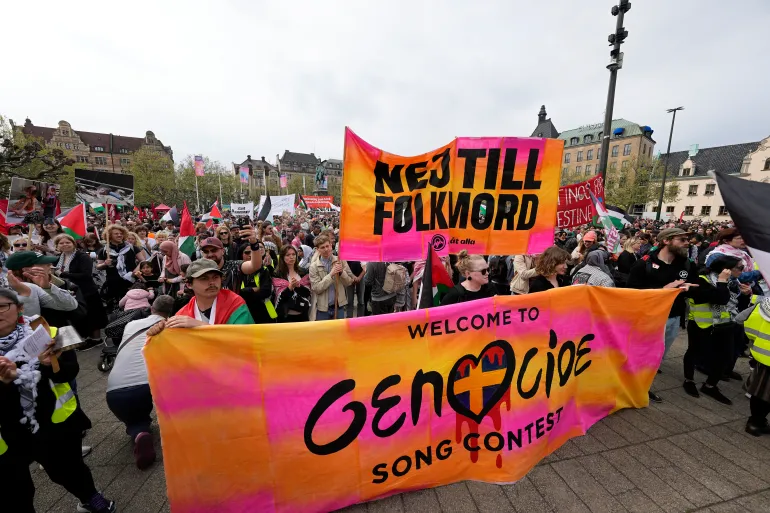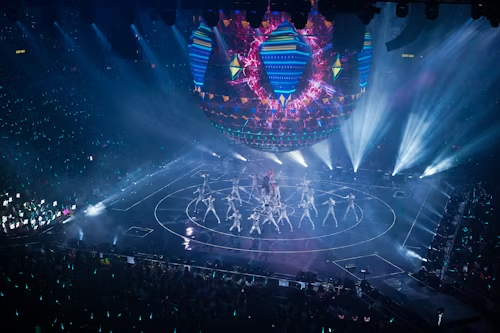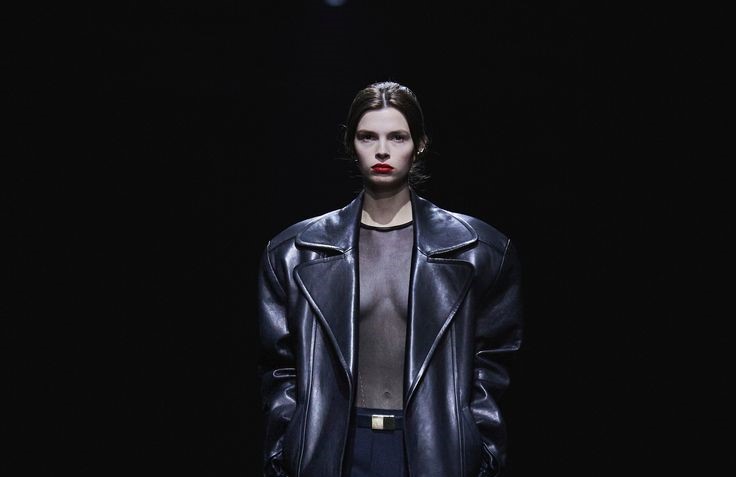Netherlands Eurovision 2026 boycott calls are gaining momentum after Dutch broadcaster AVROTROS announced that it will withdraw from next year’s competition in Vienna if Israel participates. The broadcaster cited the “ongoing and severe human suffering in Gaza” as the key reason for its stance, joining a growing list of European countries and leaders demanding Israel’s exclusion from the contest.
The Eurovision Song Contest, which regularly draws more than 160 million viewers worldwide, has been at the center of political controversy before. Russia was banned following its 2022 invasion of Ukraine. But despite calls for suspension, Israel has been allowed to compete in the past two years, prompting criticism from human rights advocates and pro-Palestinian groups.
AVROTROS Statement on the Boycott
AVROTROS released a strongly worded statement confirming its position:
“Given the ongoing and severe human suffering in Gaza, we cannot justify participating in an event that includes Israel under the current circumstances.”
The broadcaster also expressed alarm about the erosion of press freedom and the large number of journalists killed during the conflict. This statement mirrors sentiments from Irish broadcaster RTE, which called participation “unconscionable,” and Iceland, which has also said it may withdraw.
Growing European Pressure on Eurovision Organizers
The Netherlands Eurovision 2026 boycott threat adds pressure on the European Broadcasting Union (EBU), which organizes the event. The EBU said it is consulting its members on how to handle geopolitical tensions and will allow broadcasters until mid-December to confirm participation.
Martin Green, Eurovision’s director, said:
“It is up to each member to decide if they want to take part in the contest, and we respect any decision broadcasters make.”

The EBU launched a formal consultation process in July to consider the controversy surrounding Israel’s inclusion in the competition.
Calls for a Cultural Boycott of Israel
The boycott call is part of a larger movement of artists and cultural organizations urging Israel’s exclusion from international events until it ends its war in Gaza.
Earlier this week, Hollywood figures including Emma Stone, Olivia Colman, and Ava DuVernay signed a pledge to boycott Israeli film institutions they say are complicit in “genocide and apartheid against the Palestinian people.”
Comparisons with Russia’s Ban
Russia has been banned from Eurovision since its full-scale invasion of Ukraine in 2022. Activists argue that Israel’s participation undermines the contest’s commitment to human rights and neutrality.
Several former Eurovision contestants, including 2024 winner Nemo of Switzerland, have signed open letters calling for Israel’s suspension. Protests around this year’s contest in Basel, Switzerland, reflected growing public anger but were smaller in scale compared to the mass demonstrations in Sweden during 2024.
Eurovision 2026 – What’s Next?
The grand finale of Eurovision 2026 is scheduled for May 16, 2026, following semifinals on May 12 and 14. AVROTROS has said it will continue preparations until an official decision is made on Israel’s participation.
Whether the Netherlands Eurovision 2026 boycott becomes reality could depend on the EBU’s stance in December — and whether other countries join the call. If multiple nations withdraw, Eurovision 2026 could become one of the most politically charged contests in recent history.
Source: Al Jazeera



